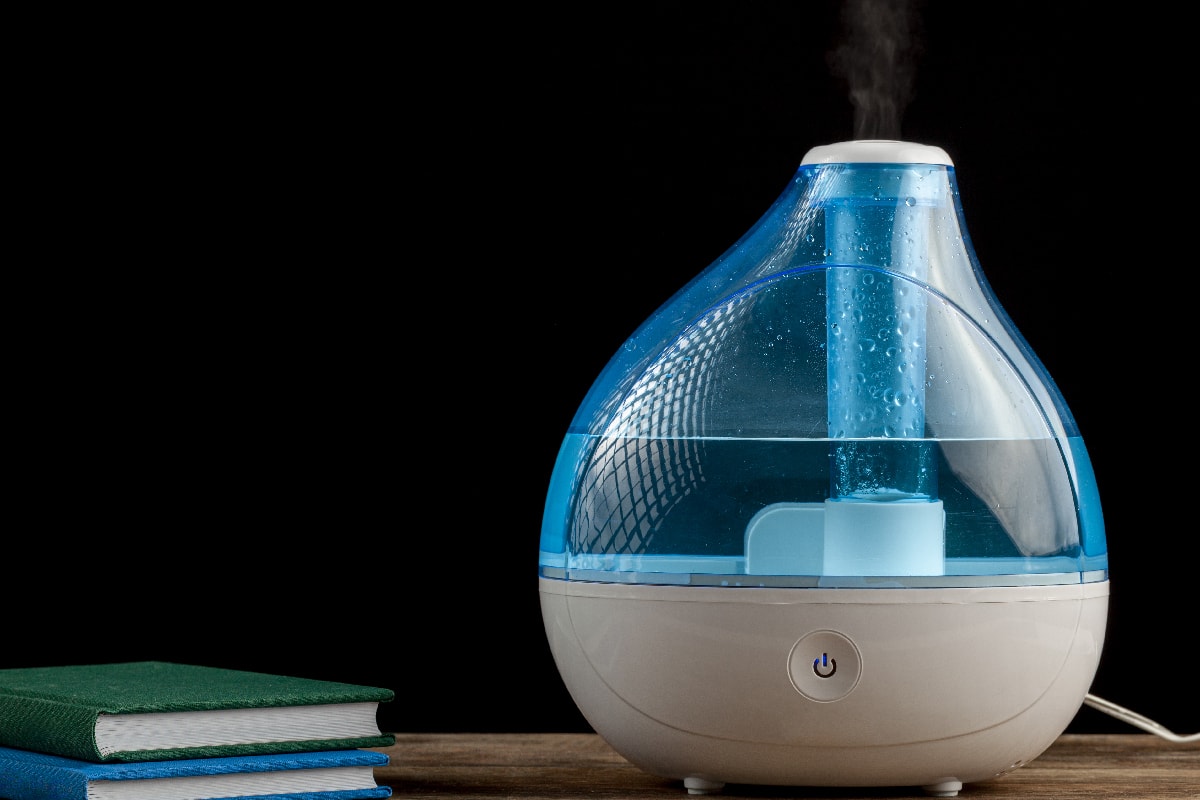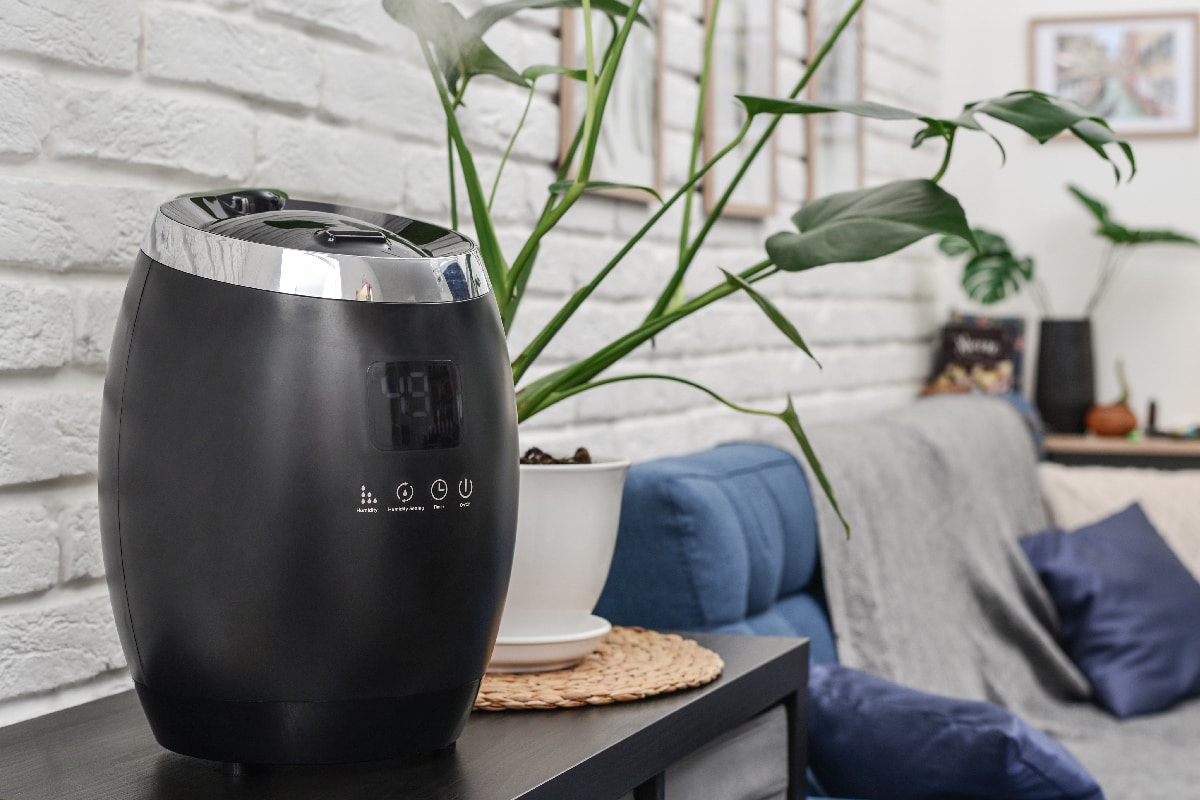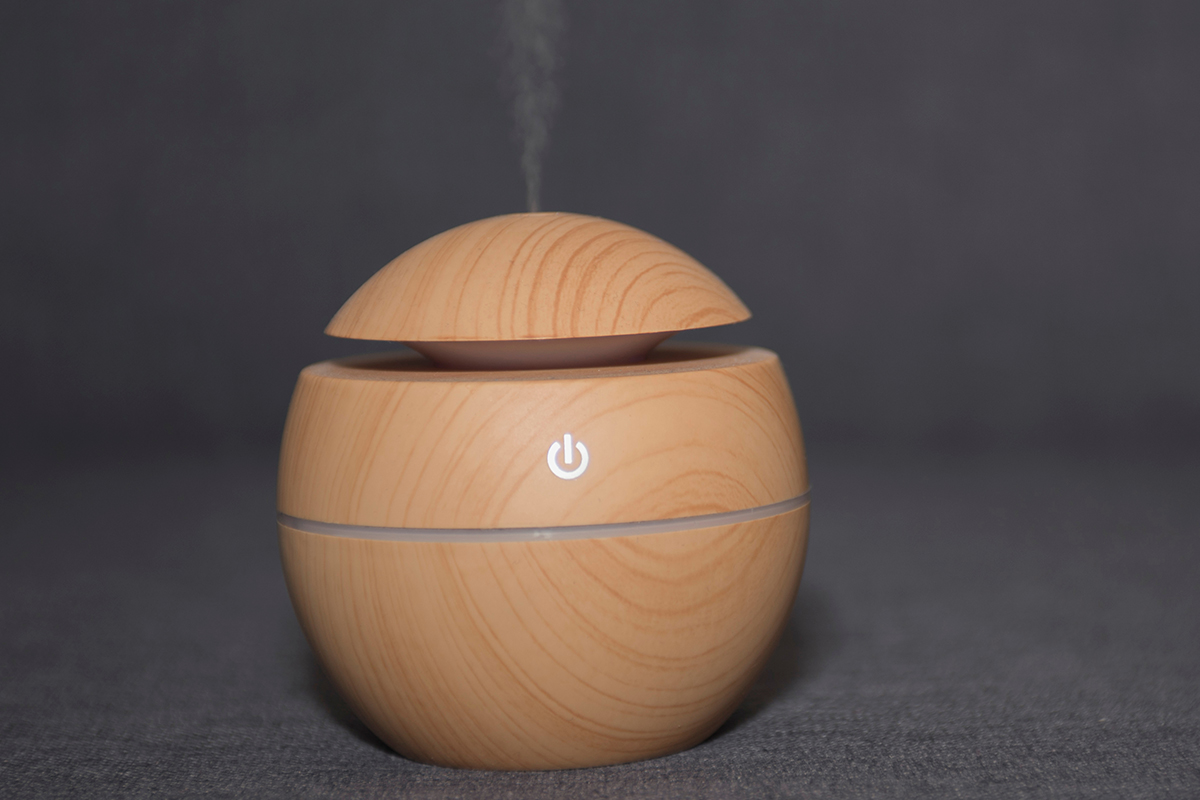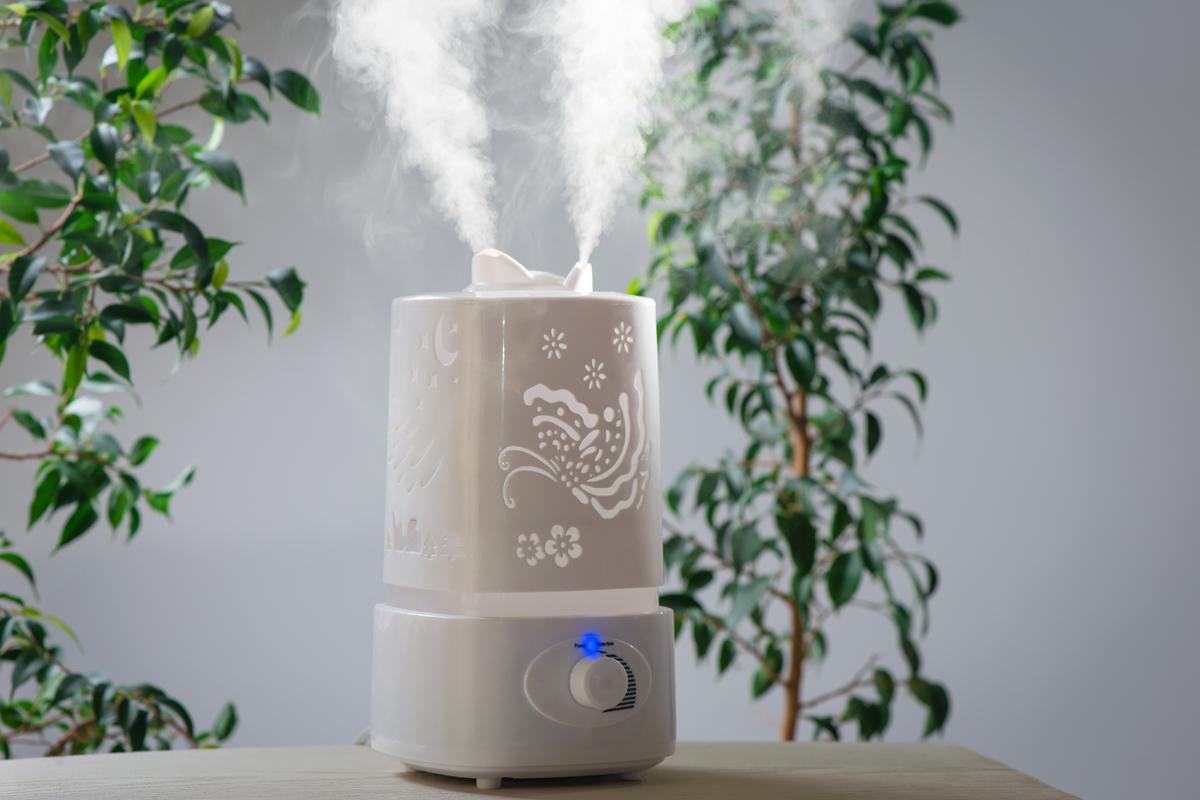Ultrasonic humidifiers are an effective tool to keep your home from feeling dry without the added risk of having a boiling, warm-mist humidifier or the short-term effects of evaporative humidifiers. However, you can only maximize the full benefits of an ultrasonic humidifier if you know how to use it. So, how do you maximize its efficiency? We have gathered the answers for you.
Ultrasonic humidifiers work by utilizing a vibrating metal plate on its diaphragm to release mist into the air. Here's how you can effectively use it.
- If the unit is new, clean it before using it. Make sure to do this routinely to prevent bacterial accumulation.
- Place the unit in an area where it can effectively humidify your space.
- Put distilled water into the humidifier since it has more health benefits. It will also prevent your humidifier from collecting hard water residue.
Having an ultrasonic humidifier can offer a lot of benefits, but only if you know how to maintain and care for it. Otherwise, you could potentially introduce bacteria in your home without you knowing. Keep reading below to learn more about how to make your ultrasonic humidifier work for you.
How To Use an Ultrasonic Humidifier

Humidifiers are incredibly useful in preventing dry skin and lips, dry sinuses, and allergies. If your home is dry, you should opt for a humidity level of 40%-60% to make your home feel more comfortable.
You can use a hygrometer to measure the humidity level in your home, or you can just check your thermostat.
Make sure to properly follow the instruction manual on how to assemble your ultrasonic humidifier so it can function properly. Turn the humidifier to the highest level until your room has reached the perfect amount of humidity.
Avoid placing your humidifier in a corner where the mist can't spread out effectively. Ideally, it should be 12 inches off the wall to have wide coverage and effectively humidify your desired area.
Check out this hygrometer on Amazon.
Why Should You Use Distilled Water?
Although you can technically use tap water, distilled water is a healthier and better option. Distilled water won't have mineral residue left over by tap water, which can coat your ultrasonic humidifier over time and potentially cause malfunctions.
Tap water can also potentially pollute your home, according to a study by the University of Alberta. The effects of using tap water can be so severe that the air in home could eventually compare to the polluted air in the city.
When minuscule particles found in tap water are broken down by your humidifier, they can have negative effects on your respiratory system. The risk is potentially doubled if you use your humidifier often, or if you have preexisting conditions.
The point of using humidifiers is to improve your indoor climate; you wouldn't want your home to become polluted by using one. Your best bet is to use the cleanest water you could find so you could have a healthier home and lifestyle.
Advantages of Ultrasonic Humidifiers

Humidifiers inject moisture into the air, which is ideal during dry seasons. If used properly, ultrasonic humidifiers can offer a lot of health and lifestyle benefits. Here are the advantages of adding ultrasonic humidifiers to your home.
Check out this ultrasonic humidifier on Amazon.
Prevents dryness
If you suffer from dry skin and chaffed lips, humidifiers can be a solution. However, note that you need to pay attention to how much humidity is in the air to prevent mold from forming in random corners of the house.
Aside from checking the thermostat (which you may forget), you can also get a smart humidifier that turns off once it has reached the ideal humidity level.
Quiet Operation
Unlike other humidifiers, ultrasonic humidifiers don't make a bubbling noise. They won't distract you from work or sleep since the vibrations are barely audible.
Safe Around Pets and Children
If you have pets or children, you don't want to use a humidifier than may burn them if they knock it over. An Ultrasonic humidifier is a type of cool-mist humidifier, so there's no risk if the contents accidentally spill.
No Wick Replacements
Although wicks are only a small expense, it can be an added hassle when you need to replace them after some time--not to mention, they are an additional waste. Ultrasonic humidifiers don't have a wick, so you won't have to exert any more energy for it.
Consumes Less Electricity
Ultrasonic humidifiers are the most energy-efficient machines among all types of humidifiers. They only consume 30 watts for 15 hours or 11.8 kWh per year. This makes them a good option if you need something to add moisture to your home without too much financial cost.
Disadvantages of Ultrasonic Humidifiers

Although ultrasonic humidifiers have a lot of advantages, some drawbacks are possible if you don't use your device correctly. Here are potential issues you may face unless you adjust your practices.
Read: Why Did My Ultrasonic Humidifier Clog The Furnace Filter?
White dusting
The white dust you may see coating your furniture and flooring is a result of tap water residue. Tap water has a lot of minerals that have broken down when it's used in the humidifier, and that includes the water droplets. This is why it's important to use distilled water in your humidifier.
Risk of mold
If you use your humidifier when your space is already humid as it is, you might expedite the formation of mold and bacteria around your house. During humid summer months, it is best to go for dehumidifiers or mini-splits.
Bacteria can grow on surfaces if the humidity level gets to 50% and you still operate the humidifier.
Make sure to regularly change your water, especially if you use it for long hours. You should immediately throw away used water after 24 hours, even if there is still some left.
Read: Is Pink Mold In Humidifier Dangerous [Inc. How To Eliminate It And Prevent It]?
Should You Put Essential Oils To Ultrasonic Humidifiers?
Essential oils should be put into aroma diffusers, not ultrasonic humidifiers. You should never put oils into your humidifiers since they could block their parts and cause malfunction.
Are Ultrasonic Humidifiers Cheaper?

When it was released, ultrasonic humidifiers were more expensive compared to other types of humidifiers because of their more advanced technology. However, nowadays, the price difference has narrowed, making them more worth the investment.
They usually last a long time too. If cared for properly, they can last up to 5 years. With regular use, they can last up to 2 years--which isn't a bad deal considering the cost.
Ultrasonic Humidifiers are only around $25 more expensive than common evaporative humidifiers. Because of their quality, the extra costs are worth it to maintain your health and the air quality of your home.
Ultrasonic Humidifier vs. Evaporative Humidifier -- Which is Better?
![A comparison between ultrasonic humidifier and evaporative humidifier, Ultrasonic Humidifier: How To Use [Step By Step Guide]](https://hvacseer.com/wp-content/uploads/2022/11/A-comparison-between-ultrasonic-humidifier-and-evaporative-humidifier.png)
Ultrasonic humidifiers are often compared with evaporative humidifiers since they are 2 types of cool mists. Evaporative humidifiers are cheaper and more common, but they require more maintenance since you won't know if debris is already accumulating in the unit.
With ultrasonic humidifiers, you will know immediately if the air you're inhaling is polluted. You also won't have the hassle of replacing the wick.
How To Clean An Ultrasonic Humidifier
Cleaning your ultrasonic humidifier is highly crucial in maintaining the air quality in your home. You wouldn't want your home or your unit to be bacteria-infested when you purchased it so you could be healthier. Here is how you can clean your humidifier.
- Prepare a brush (old or unused toothbrush can suffice), soft towel, and water.
- Remove the power source from the unit to prevent accidents. Water and electricity do not mix well.
- Remove the tank and empty it. Remove the cap to air dry for 30 minutes.
- Use a brush to remove debris and residue.
- Clean dirty or moldy parts with distilled white vinegar.
- Rinse with water, let dry, and assemble.
It's best to give a quick clean to your ultrasonic humidifier every week for maintenance. Do a deep clean once every 3 weeks to prevent mold growth.
You can also wash the external parts with mild soap if you don't want to use distilled white vinegar.
Read: How To Clean Humidifier Without Vinegar [Step By Step Guide]
Final Thoughts
Humidifiers in general can improve the quality of your indoor climate. However, you need to follow best practices to avoid issues. As always, make sure to routinely clean and maintain the device to make the most out of it.


